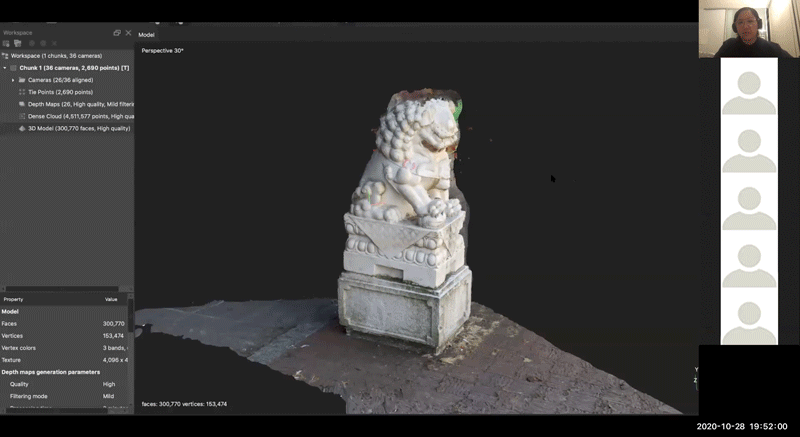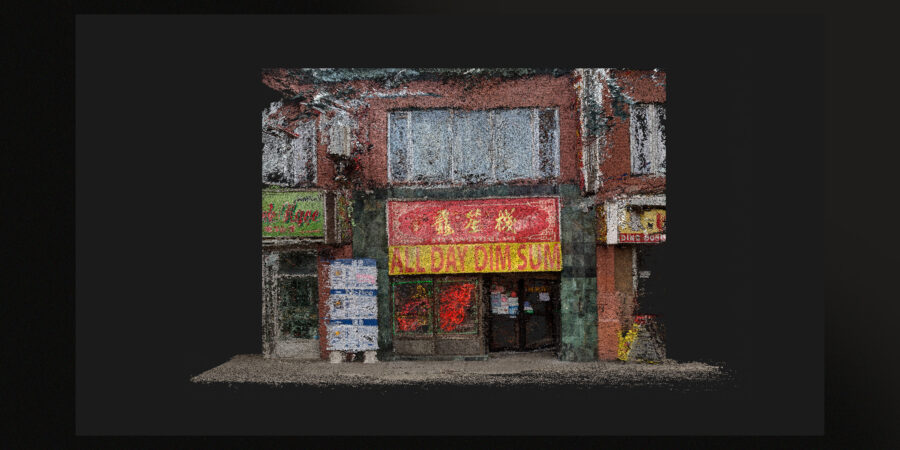About the Project
Future through Memory is a study in the affordances of virtual reality and interactivity as a method of civic engagement, placemaking and placekeeping in Toronto’s Chinatown. The title “Future through Memory” hearkens back to Wendy Chun’s text, The Enduring, Ephemeral, or The Future is a Memory (2008). Using participatory action research as the central methodology, co-creation workshops were held with individuals within the Toronto Chinatown community to develop what Pierre Nora’s describes les lieux de mémoire (site of memory) in “Between Memory and History: Les Lieux de Mémoire” (1998) within an interactive documentary using WebVR (A-Frame). This study explores the use of personal memory, oral testimony, transmedia storytelling and 3D photogrammetric scans as a method to highlight the agency of participants within the community, the diaspora experience and discussions of identity. This project takes a decolonial theoretical framework and is centred on developing a collective memory — “collective, plural, yet individual” (Nora, 1989), questioning traditional structures of historical representation within virtual reality.
This interactive documentary is the outcome of the first series of workshops with the Toronto Chinatown community. The first series of workshops was held from October 21, 2020 until December 2, 2020 and spread over seven weeks and covered an introduction to photogrammetry and interactive documentary. A second series of the workshop was held form May to July 2022 with another eight participants across North America in collaboration with the Dias:stories research group as part of the Social Sciences and Humanities Research Council research grant.
Participants within the workshops are also active co-creators to the space and the creation of their own site of memory (‘memory space’).


If you have any questions about this project and future sessions, please contact contact@lilianleung.com
This project was developed in the Digital Futures Masters program (MDes) at OCAD University. To learn more about this graduate thesis visit dfthesis.com
This project was developed with the support of the Might Pen Initiative Fund and the OCAD Graduate Studies Project Grant.